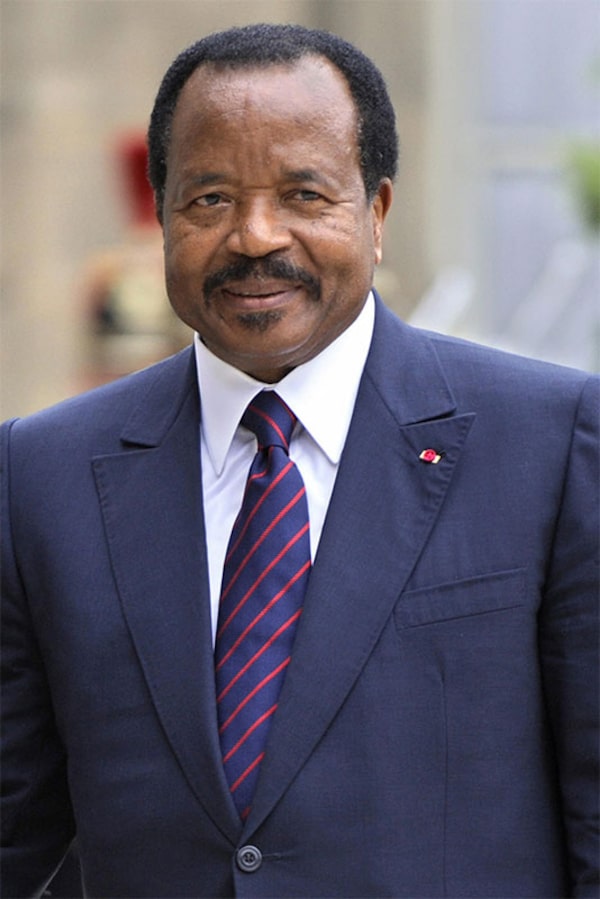
The busy Alucam aluminium plant in the city of Edéa signifies how Cameroon is becoming more industrialized.
Last year, Nestlé and Siemens made headlines after striking deals to do business in Cameroon. As these multinational firms realize, the Central African country is on the rise. The government has created Vision 2035 – a road map to generate sustained and broadly distributed economic growth and, by that year, achieve emerging nation status.
Industrialization is key to reach that objective. Cameroon is relying on foreign investors to tap into its enormous potential, which translates into big business opportunities.
Cameroon has grown its economy by over 5 per cent a year since 2013, and introduced reforms to improve the business climate and diversify the economy. The country boasts a well-educated population of 23 million, nearly three-quarters of whom are under 25. There is also a rising middle class, whose purchasing power is consistently increasing.
Cameroonian authorities tout the nation’s political stability and strategic location. Nigeria is to the west, the Central African Republic to the east, and the Republic of the Congo to the south; in all, there is easy access to a pool of 300 million consumers.
With its cultural and geological diversity, Cameroon is often referred to as a microcosm of Africa. The country has rich natural resources, a variety of climates and soils, and the second-largest forest area in Africa (17 million hectares).
All of these assets make Cameroon the leader of the Economic Community of Central African States, the driving force behind the sub-region’s economic integration and a good risk for foreign investors.
The government of Cameroon is relying on both the public and the private sector to play an important role in the nation’s further development.

President Paul Biya is leading Cameroon on a path towards greater economic opportunities.
“Land of Attractiveness”
Two years ago in Yaoundé, Cameroon’s capital, President Paul Biya held an international economic conference on investment opportunities. The theme was “Investing in Cameroon, Land of Attractiveness”. The conference was part of an overall strategy to improve the investment climate in Cameroon.
“Our nation’s greatest challenge remains the creation of the conditions needed for genuine industrialization,” President Biya said.
Cameroon has undertaken numerous structuring projects in key sectors: agri-food; road, rail, port and airport infrastructure; energy; construction and urban development; mining; new technologies; and more.
That reflects the breadth and scale of potential public-private business opportunities, facilitated by a government that has stated its determination to support economic development in all fields.
Some of these projects are approaching completion, such as the Kribi deep sea port (one of the largest along the West African coast) and numerous hydroelectric power plants. These will open new possibilities for development in Cameroon.

The Port of Douala is the largest in Central Africa, and is home to most of Cameroon’s international trade.
On the administrative front, the country has created new institutions like the Competition Regulatory Council, the Investment Promotion Agency, the Cameroon Business Forum, Business Registration Centres, and the Single Window for Foreign Trade.
As well, Cameroon has enacted banking reforms and a number of laws and regulations to support economic development, such as the Investment Charter Act, the Private Investment Incentive, and the Law Governing Economic Zones.
Together, these moves aim to make Cameroon more appealing to investors, and boost the competitiveness of the economy.
Favourable economic climate
Many Asian, European and North American investors have already expressed great interest in being part of Cameroon’s future.
For instance, Cameroon possesses vast hydroelectric potential. While numerous state-built dams have been erected, there are still many opportunities for profitable private-sector developments. Beyond demand within Cameroon, there’s intense demand across the region, with neighbouring Nigeria, Chad, the Central African Republic and others ready to buy Cameroon’s power production.

Mahima Square in Yaoundé, a city of about 2.5 million, is part of Cameroon’s urban development.
On-site transformation and processing of the country’s raw materials – from mineral ores to agriculture – is another important opportunity for potential investors. Other sectors that show promise: oil exploration; drilling and refining; construction materials; computer components; farming equipment; and textiles.
As it moves towards Vision 2035, Cameroon is well-positioned with advantageous human and natural resources, a new environment to support economic progress, and a focus on improving pillars like power supply and transportation infrastructure.
It all adds up to make the African country an alluring destination for even the most demanding of investors.
Advertising feature produced by Globe Content Studio. The Globe’s editorial department was not involved.